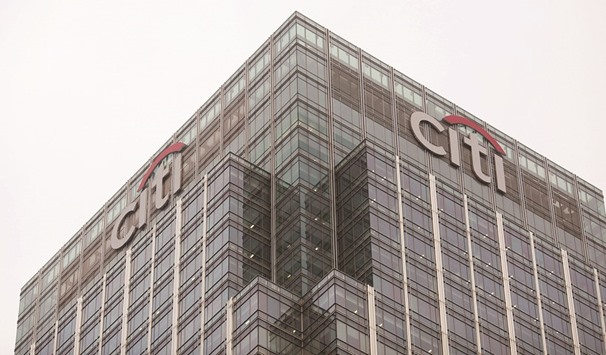The foreign banks in Russia, where sanctions have crippled deal-making, face a prolonged slump after the latest US warning on sanctions.
State and Treasury department officials told several US banks this month that participating in a forthcoming Russian bond sale would run counter to US foreign policy, even if it’s not explicitly barred by sanctions, according to people familiar with the matter.
A funding crunch has added to Russia’s woes, with the economy hurt by two years of sanctions imposed over the Ukraine conflict, a plunging ruble and slump in oil costs.
Foreign securities firms left in Russia including Citigroup, Goldman Sachs Group and Bank of America Corp are under increasing pressure to assess their positions in the country, with investment-banking revenue at the lowest in more than a decade. Others including Royal Bank of Scotland Group and Barclays have already shuttered activities or scaled back business, with recent senior departures.
“Banks always say they are there for the long term,” Tom Adshead, chief operating officer at Macro Advisory in Moscow, said by phone. “This is the time that commitment gets tested.” The longer the sanctions last, the more banks will “throw in the towel,” he said.
The US and European Union sanctions bar many of the country’s largest companies, including state-owned lenders Sberbank PJSC, VTB Group and Vnesheconombank, from raising money abroad. While they don’t apply to the government per se, a Eurobond deal could allow the Kremlin to borrow on behalf of targeted entities, Timothy Ash, head of emerging-market strategy at Nomura International in London, said by e-mail.
“The message from the US administration is still that sanctions on Russia will remain in place for an extended time unless there is a sea change in behaviour from Moscow,” Ash said.
In a sign of the disruption the sanctions have caused, President Vladimir Putin replaced the head of VEB, the Kremlin said on Friday. The bank stopped lending after being barred from raising money abroad in 2014 and the government is discussing a bailout.
“The US government is pushing US banks to adopt behaviour that suits policy rather than just obeying just the rule of law,” Simon Fentham-Fletcher, chief investment officer at Freedom Asset Management, said by e-mail. “The remaining international banks must be wondering when the tumbleweed that is Moscow’s banking sector can be gathered up or whether they just close shop like many before them have done.”
Fentham-Fletcher worked at Raiffeisenbank and Renaissance Asset Managers in Moscow for eight years before leaving in 2015. He still visits the country frequently.
Russia solicited Goldman Sachs and more than 20 other banks for proposals to organise a possible return to foreign debt markets for the first time since 2013, before the annexation of Crimea triggered sanctions that virtually closed the Eurobond market to Russian borrowers.
Many banks didn’t respond to the ministry’s call, Russian Deputy Finance Minister Sergey Storchak told reporters last week. He declined to identify the no-shows or to say how many bids the Finance Ministry did receive. “We have banks to choose from,” he said.
While foreign lenders accounted for about two-thirds of Russian investment-banking revenue prior to the sanctions, their share dropped to less than half last year even as business volumes plummeted, according to the New York-based consultancy Freeman & Co. Total fees charged in the sector last year were $230mn, compared with $858mn in 2013 before the sanctions were in place.
Some foreign lenders, including Citigroup, also have consumer businesses. The local units of Raiffeisen Bank International and UniCredit are big enough to be considered systemically important by Russia’s central bank. International firms have largely retained their consumer units.
“This is a continuation of the long and sorry saga of these sanctions,” Anton Tabakh, chief economist at Moscow-based ratings company RusRatings, said by phone. “The US government is not easing pressure despite some hope that the EU will relax its policies this year. And US sanctions are the ones that bite the most.”

The headquarters of Citigroup in London. Foreign securities firms left in Russia including Citigroup, Goldman Sachs and Bank of America are under increasing pressure to assess their positions in the country, with investment-banking revenue at the lowest in more than a decade.
